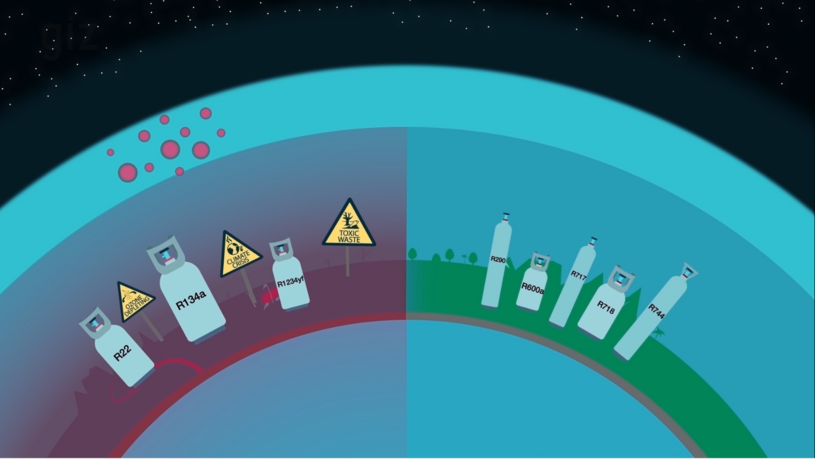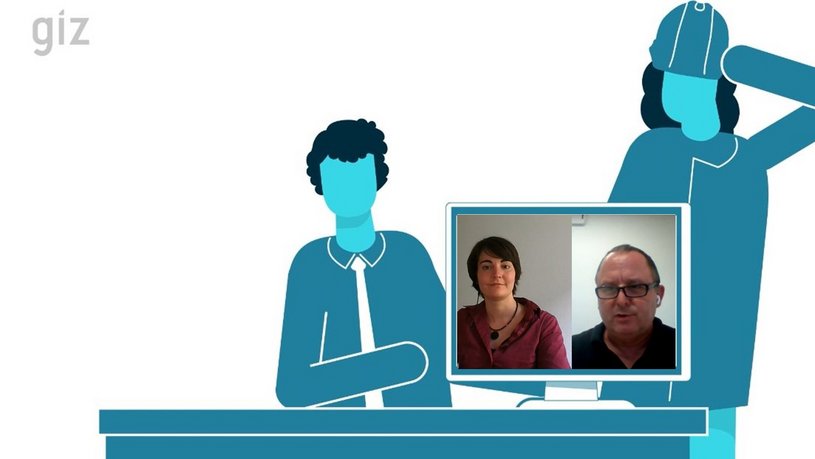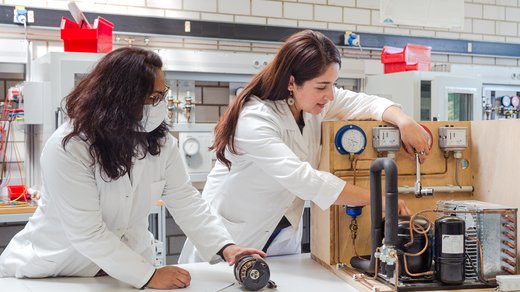After a forced two-year break, Proklima's Cool Trainings are back – online and on-site. In addition to our previous Cool Trainings in Maintal, Germany, an online Cool Training was launched. It is composed of self-learning material and live webinars. Two webinars for Spanish speakers were the first in the series in 2022.
“Technicians who work with ammoniac usually do not want to work with other refrigerants again. They form kind of an exclusive club”, commented the trainer – Reiner Mayers of the German professional training institute Bundesfachschule Kälte-Klima-Technik (BFS) – when talking about the natural refrigerant ammoniac (R717). The moderator wanted to know: “Is anyone here who belongs to the ‘exclusive ammoniac club’?” None of the twenty participants affirmed, though. Instead, one participant confessed that he “has fallen in love with CO2”, due to its low environmental impact, its small components sizes and because it operates in the transcritical range which takes us “out of our comfort zone”. Most of the participants from Chile, Colombia, Costa Rica and some other Latin American countries, however, seemed to belong to the ‘Propane Club’. They posed a lot of expert questions about the use of this highly efficient hydrocarbon to Reiner Mayers.
Answering questions is the main purpose of the live webinars that complement the Cool Training online course on www.atingi.org. The course provides basic knowledge about refrigeration and about the characteristics and advantages of climate-friendly natural refrigerants. It is available in English, French and Spanish.
The corresponding webinars for Spanish-speakers took place on 31 May and 2 June. They will be followed by webinars with French interpretation on 20 and 21 July and English webinars on 20 and 22 September. Participation in the online course and in the live webinars is open to anyone interested in Green Cooling technologies. For participants of the on-site Cool Trainings, the online course serves as a basis.
Why Cool Trainings?
Cooling is an essential part of everyday life – from cold chains for fresh food and the safe storage of vaccines and medicines, to air-conditioned workplaces and schools where it can elevate productivity. Cooling is a basic need for everyone.
The positive effects of cooling, however, come with a downside. The refrigeration and air conditioning (RAC) sector is a massive emitter of greenhouse gases. This is due to appliances that are not energy-efficient and the high global warming potential of commonly used refrigerants. Many air conditioners and refrigerators contain substances which are up to 15,000 times more harmful to the climate than CO2. The cooling sector is estimated to account for 13% of global greenhouse gas emissions by 2030. It thereby contributes to the climate crisis that is leading to disasters like inundations and droughts. A future-friendly transformation of the cooling sector towards natural refrigerants and energy-efficient equipment is therefore urgently necessary.

That makes spreading in-depth knowledge and the capacity to operate and maintain energy-efficient cooling technologies based on natural refrigerants so important. The Cool Training was established by GIZ Proklima to train technicians from the refrigeration and air conditioning sector on how to work with such Green Cooling technologies. The programme also provides an opportunity for national ozone officers to better understand the background of their work on protecting the climate and the ozone layer.
The first Cool Training in cooperation of GIZ and Bundesfachschule Klima-Kälte-Technik (BFS) in Maintal took place in 2014. Since then, Cool Trainings for technicians and national ozone officers have been held several times a year until 2020. This year, after a two-year break, three Cool Trainings will take place again – in English, French and Spanish.
The participants of the webinar who will be able to join the on-site training in Maintal are already looking forward to extending their knowledge by practical exercises. Let’s see if they stay in the ‘Propane Club’ or if some of them discover their affection for ammoniac or CO2.


